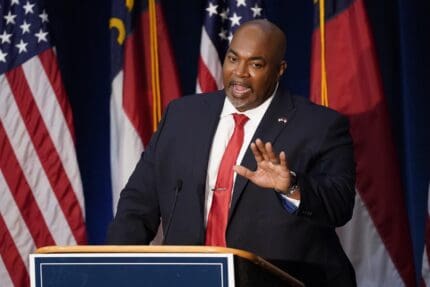Trump still trying to get rid of health care when Americans need it most
A new analysis suggests more than 20 million Americans losing their employer coverage will be eligible for Obamacare plans.

Donald Trump is trying to undermine the Affordable Care Act still, even as millions of Americans find themselves being kicked off their employer-based insurance.
A Kaiser Family Foundation analysis, released on Wednesday, estimated that more than 20 million
of the 31 million-plus Americans who recently filed for unemployment over the first several weeks of the COVID-19 pandemic will be eligible to get subsidized coverage through the Affordable Care Act, commonly known as Obamacare. This includes roughly 12.7 million who could get insurance through Medicaid and 8.4 million who could obtain it through the law’s exchanges.
“Unlike in past recessions, most of those who lose their job-based coverage will be eligible for health coverage because of the Affordable Care Act, though some may find coverage unaffordable even with subsidies,” Larry Levitt, the foundation’s executive vice president for health policy, said in a press release. “As unemployment benefits expire, however, about two million more people in states that did not expand their Medicaid programs under the ACA will move into the Medicaid coverage gap and have no affordable option.”
The analysis looked at those who filed unemployment claims between March 1 and May 2. Between the when coronavirus crisis began in March and last Thursday, at least 33 million Americans have lost their jobs and sought benefits.
Still, Donald Trump said last week that his administration will continue to try to get the Affordable Care Act eliminated entirely, via the courts. Some in his administration, including Attorney General William Barr, have reportedly urged him to rethink his support for an ongoing legal challenge, but Trump has refused. The Supreme Court is set to hear the case sometime this fall.
“[W]hat we are doing is we want to terminate health care for under Obamacare because it’s bad,” Trump said on May 6, “and we’re replacing it with a great health care at far less money and it includes preexisting conditions.”
He has been pushing to eliminate the law for years, frequently promising to replace it with an unspecified “terrific” alternative.
As a candidate, he pledged to provide health care coverage for every single American and to put his plan into place “immediately after we go in” to the White House.
He has never actually offered a plan to do that. Instead, he backed congressional Republicans’ proposal to repeal Obamacare and replace it with a system that would leave an estimated 23 million more people uninsured by 2026. That bill passed the GOP-controlled House in 2017 but failed by one vote in the Senate.
Unable to repeal the law legislatively, he backed a legal challenge by Republican attorneys general and worked to undermine it through a series of changes and executive actions.
These included decimation of the individual mandate that required people to be insured or pay a penalty, cuts to the navigator program that helped people get insurance, slashing of the advertising budget to encourage people to get covered, and pushing for cheap “junk” plans that offer minimal coverage.
In September, Kaiser Health News reported that about 2 million more Americans lacked health insurance in 2018 than the year before — the first increase in a decade.
“In a period of continued economic and job growth, we shouldn’t be going backwards on health coverage,” Judy Solomon, a senior fellow for the Center on Budget and Policy Priorities, told the publication at the time. “This backsliding almost certainly reflects, at least in part, Trump administration policies to weaken public health coverage.”
Despite Trump’s repeated attacks on the law, Obamacare is popular. According to a March Gallup poll, 52% of Americans support the law. The KFF Health tracking poll has consistently shown majority or plurality support for it for the past two years.
Published with permission of The American Independent Foundation.
Recommended

Biden campaign launches new ad focused on Affordable Care Act
Former President Trump has said he wants to do away with the popular health care law.
By Kim Lyons, Pennsylvania Capital-Star - May 08, 2024
Ohio doctors fear effects of emergency abortion care case set to go before U.S. Supreme Court
A federal law that allows emergency departments to treat patients without regard to their ability to pay will be under U.S. Supreme Court scrutiny this week, and Ohio doctors are concerned about the case’s local impact on emergency abortion care.
By Susan Tebben, Ohio Capital Journal - April 23, 2024
House GOP votes to end flu, whooping cough vaccine rules for foster and adoptive families
A bill to eliminate flu and whooping cough vaccine requirements for adoptive and foster families caring for babies and medically fragile kids is heading to the governor’s desk.
By Anita Wadhwani, Tennessee Lookout - March 26, 2024


















































































